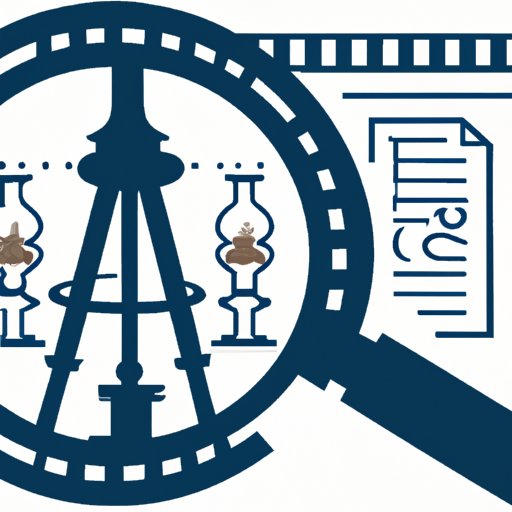Introduction
Reincarnation is a fascinating and complex concept that has existed for centuries. The idea that our souls continue on after our deaths and are reborn into new bodies is a common belief in many religions around the world. This article will explore the different religions that believe in reincarnation, examining their beliefs and practices. We will also delve into personal experiences, philosophical perspectives, scientific research, and common misconceptions surrounding this spiritual concept.
A Comprehensive Guide
Reincarnation has a long history, with some of the earliest records of the concept dating back to ancient Hindu and Buddhist texts. Reincarnation refers to the belief that after death, a part of a person’s soul (or consciousness) is reborn into a new body. This body could be human or non-human, depending on the belief system in question. Some religions and cultures believe that a person’s actions in their previous lives will determine the circumstances of their next life.
There are different interpretations of reincarnation across different religions. For instance, Hindus believe in reincarnation, but they also hold Karma as central to this concept. According to Hindu teachings, our karmic actions in our previous lives determine the conditions we will have in our next life. In contrast, Buddhists view reincarnation as a cycle of birth, death, and rebirth conditioned by karma, but they also believe that enlightenment can lead to liberation from this cycle.
Here is a list of the religions that believe in reincarnation:
- Hinduism
- Buddhism
- Jainism
- Sikhism
- Native American religions
- Some African religions
- Some new age and spiritual movements
Comparing Beliefs
While the basic concept of reincarnation is similar across all of these religions, there are significant differences in beliefs and practices. For example, Hinduism views reincarnation as an endless cycle of birth, death, and rebirth. In contrast, Buddhism sees reincarnation as a chain of existence in which past karma and one’s current actions control one’s future existence.
Why the differences in beliefs? It’s partly because each religion comes from different cultural backgrounds and has different philosophical underpinnings. It’s also because each religion has its interpretation of the concept of reincarnation. For example, the Buddhist concept of “Anatta,” or “not-self,” rejects the idea of the soul or self, while Hinduism and Sikhism believe in the concept of Atman or “Self.”
Personal Experiences
Many individuals report having personal experiences that suggest the existence of reincarnation. One example is the case of James Leininger. James was a young boy who claimed to have memories of being a World War II fighter pilot named James Huston Jr. After extensive research, it was found that James Huston Jr. was indeed a real person who died in the war.
These personal experiences can be significant for those who experience them. They often use their newfound beliefs in reincarnation to guide their lives.
Philosophical Perspectives
There are various philosophical perspectives surrounding the concept of reincarnation. In Hinduism and Sikhism, reincarnation is seen as a means to achieve Moksha (liberation). It means that the soul merges with a higher power or Supreme Being, or escapes the cycle of rebirths.
In contrast, Buddhism’s philosophical perspective argues that the goal is to escape the cycle of rebirths and attain Nirvana. According to Buddhist teachings, this state is beyond birth and death and is considered the highest form of spiritual attainment.
Scientific Research
While the scientific community cannot prove or disprove reincarnation, some researchers have attempted to study the phenomenon. For example, Dr. Ian Stevenson, a former professor of psychiatry, has studied the reported memories of hundreds of people who claim to remember past lives. His research findings suggest that these memories cannot be explained by ordinary physical or psychological means.
Many different religions attempt to reconcile their beliefs about reincarnation with scientific research. Some believe that scientific research can provide evidence for the existence of reincarnation, while others recognize that science cannot prove their beliefs.
Common Misconceptions
There are several myths and misconceptions surrounding reincarnation. One common misconception is that all religions that believe in reincarnation view it as a punishment. However, for many religions like Hinduism and Buddhism, reincarnation is a means for spiritual progress.
Another myth is that reincarnation only applies to humans. Some religions believe that reincarnation can happen in different forms, including animal or plant form. Some also believe that people can be reincarnated into different dimensions or planes.
Conclusion
Reincarnation is a concept that has been a part of many religions around the world for centuries. While the beliefs and practices surrounding reincarnation vary depending on the religion and culture, the basic concept remains the same. This article explored the different religions that believe in reincarnation, comparing their beliefs and practices, and providing personal experiences, philosophical perspectives, scientific research, and common misconceptions surrounding this spiritual concept. We encourage our readers to explore their own beliefs on reincarnation.
